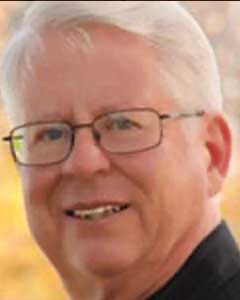REFERENCES FROM poet Robert Frost first drew this reviewer’s attention to Sabbath Blessings, posted weekly to the Canadian Anglican Internet discussion list by author Molly Wolf who lives near Ottawa. This is from Mr. Frost’s The Mending Wall: Something there is that doesn’t love a wall And on a day we meet to walk the line And set the wall between us once again We keep the wall between us as we go Something there is that doesn’t love a wall That wants it down. Here, the American laureate reflects on a spring tidying of the stone barrier separating his property from that of his neighbour. He muses on the argument that “good fences make good neighbours,” preferring that there be no wall. Like Mr. Frost the poet, Ms. Wolf the prose writer discovers lessons about life in ordinary experiences, and leads us through 52 reflections to help us discover transcendent meaning that is “hiding in plain sight.” Because God readily appears in the practical and the everyday, God is not confined to a tabernacle, hidden in a mass of complex concepts, absent from our plain view and out of reach. God is here with us ? in us and around us ? while we do the laundry or needlepoint. God is part of the landscape we walk or drive through. Words can create dreadful barriers or be powerful amplifiers of spiritual meaning. Ms. Wolf has a way with words and speaks plainly. She forms new linkages, makes old phrases come alive, and creates new images where none previously existed. Hiding In Plain SightSabbath BlessingsBy Molly Wolf$20.75 (paper)The Liturgical Press0-8146-2506-1For example, the author is captivated by the term "miserable offenders" from the General Confession in the Book of Common Prayer. If employed in normal liturgy, this phrase is likely to slip right past one’s consciousness. Not a particularly satisfying expression, it implies that we humans have somehow missed the mark; the term is also dated. Instead of resorting to a current muted cliché, such as "dysfunctional" however, Ms. Wolf reclaims an ancient meaning and recreates for us, through deft turn of phrase, a focused word picture of feeling badly about what we’ve done and why that’s quite appropriate. Not confined to the words of liturgy or the rites of the church, Ms. Wolf discovers God at work in the seasonal evolution of plants, in her pet cat, in the elements she observes through her kitchen window or during a walk on the beach at low tide. She does excellent studies of people ? some of whom she admires and some with whom she has problems. There is a healthy honesty that transcends mere propriety or political correctness. We don’t spend much time with Ms. Wolf before we know how she really feels about something or some one! In the section entitled The Spinner she refers to her hobby of stripping lanolin and combing the virginal wool. She associates this with family life. While hanging out the wash she prays and recognizes how ? as a single mom with two sons ? the three have together been transformed during the past six months. “It hasn’t been easy for them,” she says of her boys, “but they have grown and matured. The older one has begun to say hello to his adult left; the younger has finally begun to say goodbye to his baby edition. … It has been a transforming time. They too have grown in grace and faith.” If the reader is like this reviewer, he or she will be transported from Mr. Frost’s poetic ideas to new truths in Ms. Wolf’s poignant essays. This is not systematic theology but spiritual reflection on the vagaries and verities encountered in daily living. Here is observation seasoned with prayerful attitude and analytical assessment. This book links heart and mind and, in the process, offers doxology from the very midst of life. Rev. Dr. Wayne A. Holst is a lecturer at the University of Calgary. He was for 25 years a Lutheran pastor, missionary, and church executive. His work focuses on the comparative spirituality of indigenous peoples and cross-cultural awareness.




